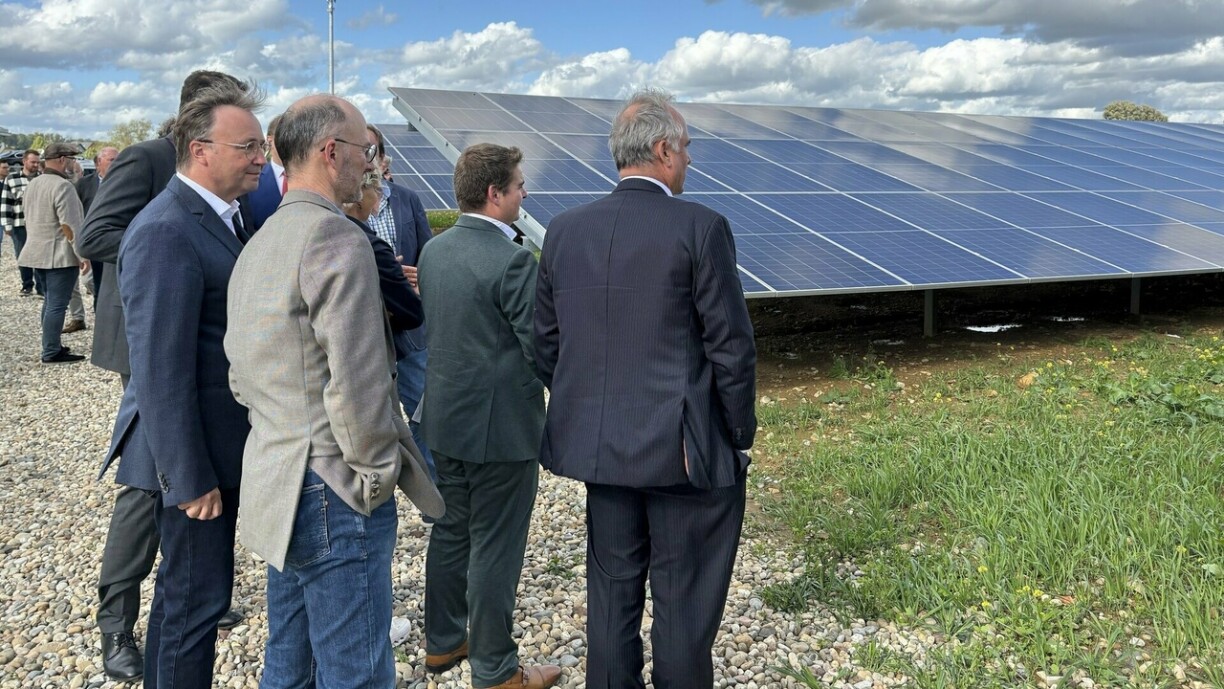
Luxembourg is advancing plans to increase its energy independence, with solar power – particularly innovative agricultural photovoltaic (agri-PV) systems – forming a central pillar of its strategy.
This approach, which combines food and electricity production on the same land, is being pioneered by several farmers in partnership with energy provider Enovos. Initial projects range from an organic chicken farm in Sprinkange to a farm with Iberian pigs in Bastendorf.
“The ‘agri’ in agri-PV comes first”, emphasised Minister of Agriculture Martine Hansen, “This means that agriculture and our food production must always remain the priority.”
A prime example is the new installation in Sprinkange. Its 5,868 solar panels spread across one and a half hectares have an annual output of 3.6 gigawatt-hours, generating enough power for approximately 920 households. Crucially, such large-scale projects are designed to complement, rather than compete with, smaller residential solar installations.
Minister of the Economy and Energy Lex Delles underscored the need for a diversified energy approach. He noted that while small-scale systems empower citizens to gain independence from volatile energy prices, large-scale production is essential for major consumers like the National Railway Company (CFL) and other industrial activities.
However, a significant challenge remains for large-scale renewable energy projects, from wind to solar: storing surplus production. When generation exceeds demand, the energy must be stored in batteries or converted into hydrogen – or the systems risk being shut down.
Organic farmer Luc Emering, who is involved in one project, highlighted this issue: “Regarding energy storage, we must quickly find solutions to operate this facility profitably in the coming years.”
In response, Minister Delles pointed to the national storage strategy presented in July, which is now under active development. “We now have sufficient production capacity to necessitate a comprehensive battery strategy”, Delles stated, noting that the plan includes neighbourhood batteries, reserve capacity, and other storage solutions.
A government bill introducing pre-financing for private solar installations is currently with the Council of State for review, according to Minister Delles.
The minister provided an update on the legislation’s status, noting it has been with the Council of State for nearly a year. The government has already received an initial opinion from the council, submitted corresponding amendments, and is now awaiting a second opinion. Delles stated that the goal is to bring the bill to a vote “as quickly as possible” once this final feedback is received.
He acknowledged high public demand for the pre-financing scheme, expressing confidence that it would provide a significant boost to solar adoption. “We are certain that after a record year in 2024, when around 8,000 systems were installed, we will get another boost from the pre-financing”, Delles said.
For homeowners considering a new installation, the ministry reiterates the importance of careful planning. Residents are advised to right-size their system to match their own consumption patterns, obtain multiple quotes from installers, and clearly enquire about project timeframes. The Climate Agency is available as a primary resource for impartial advice.